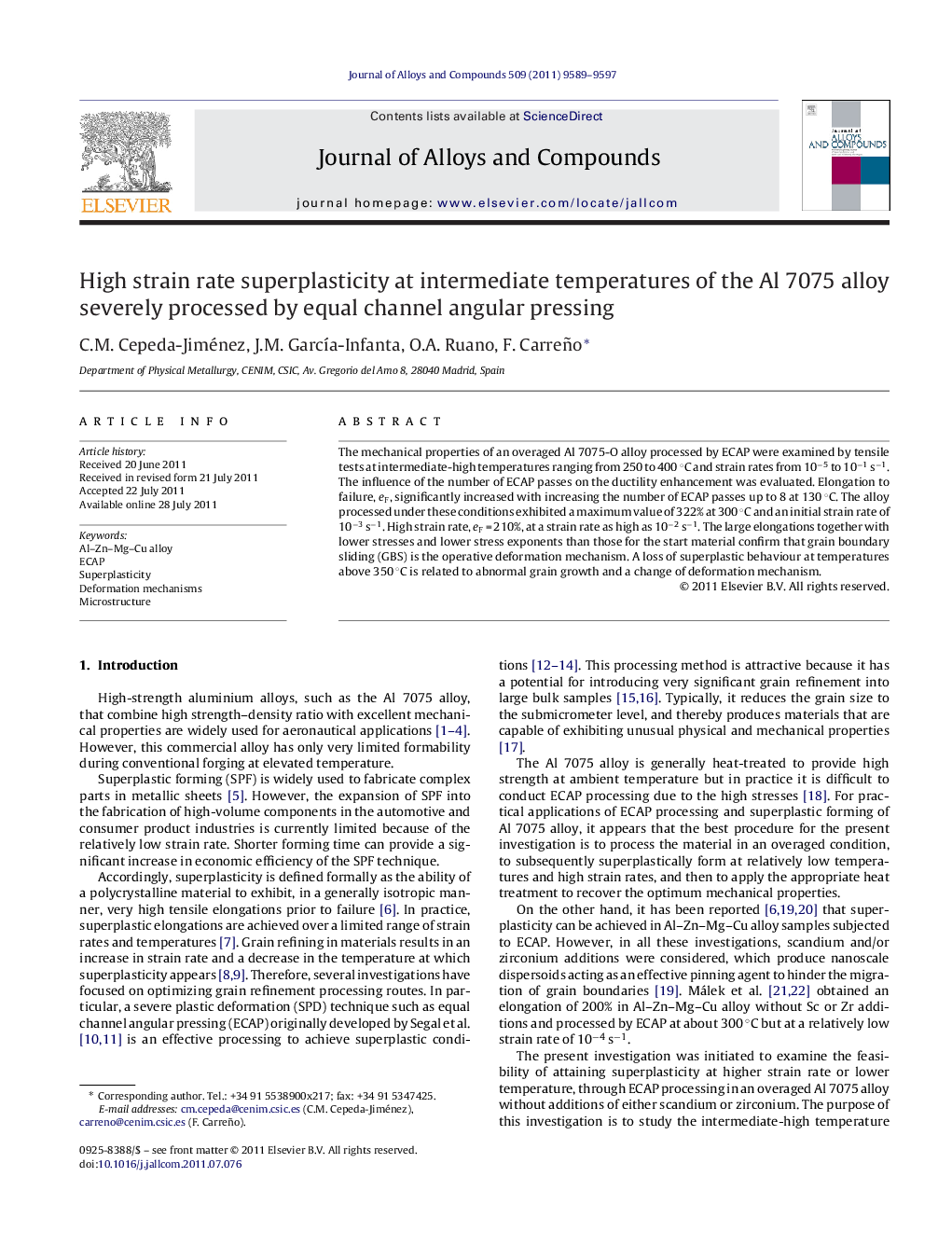| Article ID | Journal | Published Year | Pages | File Type |
|---|---|---|---|---|
| 1617026 | Journal of Alloys and Compounds | 2011 | 9 Pages |
The mechanical properties of an overaged Al 7075-O alloy processed by ECAP were examined by tensile tests at intermediate-high temperatures ranging from 250 to 400 °C and strain rates from 10−5 to 10−1 s−1. The influence of the number of ECAP passes on the ductility enhancement was evaluated. Elongation to failure, eF, significantly increased with increasing the number of ECAP passes up to 8 at 130 °C. The alloy processed under these conditions exhibited a maximum value of 322% at 300 °C and an initial strain rate of 10−3 s−1. High strain rate, eF = 210%, at a strain rate as high as 10−2 s−1. The large elongations together with lower stresses and lower stress exponents than those for the start material confirm that grain boundary sliding (GBS) is the operative deformation mechanism. A loss of superplastic behaviour at temperatures above 350 °C is related to abnormal grain growth and a change of deformation mechanism.
► Overaged Al 7075 alloy without additions of scandium or zirconium was processed by ECAP and superplasticity was achieved. ► Maximum elongation to failure of 322% was obtained for ECAPed samples by 8 passes at 130 °C. ► An elongation of 210% appears at strain rate as high as 10−2 s−1, indicating that high strain rate superplasticity was achieved. ► An interval Tmin–Tmax, where the ECAPed Al 7075-O alloy shows superplasticity has been determined. ► Grain boundary sliding is the main deformation mechanism at the maximum superplasticity conditions.
